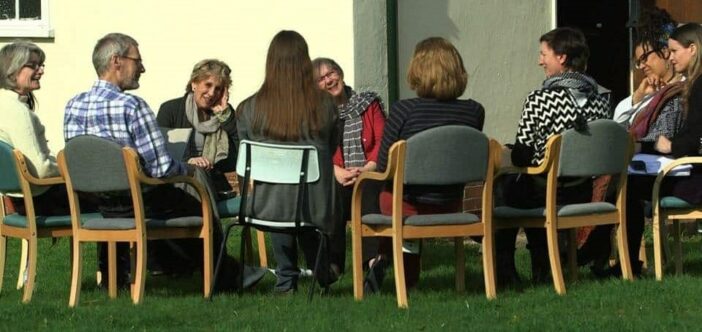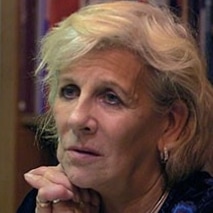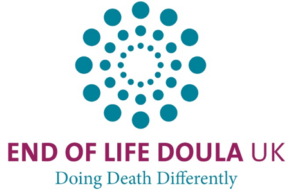End of Life Doulas: Who they are, what they do and how they can help

Photograph: End of Life Doulas in training
Doulas are often known for supporting in pregnancy, birth and the postpartum period – but a variation of this vital role exists for those approaching the end of life, too.
Aly Dickinson, Director and Operations Executive at End of Life Doula UK, explains what is involved and why people may choose to work with an End of Life Doula.
What is an End of Life Doula?
We are sometimes called Death Doulas, but rather than just being a name, we would love people to understand what we can do.
Essentially, we are supporters and companions alongside people living with a life-limiting illness, their families and those who are important to them. We are not medical, but as we work one-on-one, we are a consistent flexible presence, able to fill the gaps and take on various roles in support – practically, emotionally and, if desired, spiritually.
This film about our work follows three people and their Doula:
We like the term ‘a friend in death’; for us, this means we put the person who is dying and those important to them at the very centre. We work in an open-hearted way to create an atmosphere of loving support, kindness, respect, dignity and normality for all concerned.
We like the term ‘a friend in death’; for us, this means we put the person who is dying and those important to them at the very centre. We work in an open-hearted way to create an atmosphere of loving support, kindness, respect, dignity and normality for all concerned.Aly
We aim to help people feel safer and more at peace with death and dying, offering guidance, confidence and support in any way it is needed. Having a Doula alongside makes it possible to stay at home, but we also work in nursing homes, hospices and hospitals – it’s all about what the person chooses.
We can:
- Guide people through all the decisions and choices that need to be made at the end of life
- Be a point of contact for other services and kinds of support
- Be an advocate when wishes need to be upheld
- Organise offers of help such as giving carers a break
- Take time to sit with the dying person
- Have conversations so that death is approached without fear or loneliness
- Be practical and walk the dog, do some housework, prepare a meal or make a cup of tea
We may begin our relationship with a person from the time of diagnosis, or in the later stages of illness. We provide support for however long it is needed, sometimes for weeks and months and in some cases over a number of years. We often continue support for those important to the individual after the death.
Some Doulas choose to volunteer, while others work and charge professionally.
Another important aspect of our role is to be available to people at any stage in their lives to share our knowledge and provide guidance on death and dying. Our aim is to bring dying ‘home’ in our communities, as we believe it is everyone’s business and not the sole preserve of experts and professionals. We work in communities in so many other ways – providing information and guidance to demystify Living Wills, Advance Decisions (known as Advance Directives in Scotland), funeral arrangements, bereavement and grief support, navigating through the labyrinth of health, social care and government agencies.
Our aim is to bring dying ‘home’ in our communities, as we believe it is everyone’s business and not the sole preserve of experts and professionals.
Aly
It is important to us that our Doulas, who are supporting people in their communities, are exemplars. Any Doula referred by End of Life Doula UK will be self-employed, working to our Code of Practice with DBS/Disclosure Scotland checks and insurance. They will be allocated an approved mentor to supervise their work; this is important in providing guidance and as an additional layer of support.
Working with hospices
We are very grateful to have been asked by Pilgrims Hospices to write this blog and would like to tell a couple of anonymised stories about how we have collaborated with hospices.
Julie’s story
Julie was a 43-year-old woman with a brain tumour and was in a hospice for the last weeks of her life. Her husband approached us to say that she was frightened of dying and scared of being alone and in the dark. A Doula, Anna, sat with Julie each night for two weeks to be with her from sunset until sunrise. She relayed to Julie stories that her husband had recounted of their holidays together – swimming, sunbathing, getting merry on the local tipple – and played sounds of the sea and gentle chinking of glasses and chatter in a restaurant. Anna provided Julie with small sips of pineapple and coconut juice reminiscent of pina colada and massaged Julie’s hands and feet with lotions of her favourite scent of lemongrass. Anna talked and read to Julie throughout the night and sometimes sat in silence holding Julie’s hand as she slept; she reassured her that she did not need to be fearful and brought calm and peace to her surroundings.
Tim’s story
Tim was a 50-year-old man with a history of drug abuse and homelessness. He had not seen his adult children for many years. He was being visited at the hospice by his acquaintances who were sometimes noisy, insisting that the nurses should give Tim as much morphine as possible even though he did not want it and was in no pain or discomfort. Tim asked the Doula, Dan, to be his gatekeeper and to tell his acquaintances, on his behalf, when they could visit and when they should depart. Dan gently and sensitively kept a check on how they were with the nurses and acted as an intermediary to minimise any disruption and their demands. Dan, too, contacted Tim’s three sons and prepared them for the fact that their dad was dying. He was there to support them to enable them to visit and say what they needed to say, and for their father to make his goodbyes. Tim slipped into permanent unconsciousness and died at peace one early morning with two of his sons at his side. Dan guided the sons through making the arrangements for the funeral, and was there on the day and behind the scenes to see that everything went smoothly, which it did.
A hospice doctor shares their experience of working with an End of Life Doula
“I recently had the pleasure of working with X, an End of Life Doula who was working for one of our patients with lung cancer. Y was an insightful patient and recognised that having a doula would help her situation. Some of her family relationships were difficult, and she knew she may need the support of a doula to ensure her wishes were respected.
Y had complete faith in X and mentioned her the first time I visited her at home. It was reassuring, as her doctor, to know that she had a trustworthy person in place to help her at the end of life and that she had met her and involved her in all her plans. It made my discussions of advance care planning much easier, as the idea had already been introduced and Y was comfortable talking about her wishes.
Unfortunately, Y needed admitting to the hospice for escalating pain; X needed to be called urgently as Y became rapidly more unwell and it was clear that she was entering the dying phase of her illness. X came back early from holiday to be with Y and her presence was immediately a calming influence
X was so kind and caring with Y, staying with her 24/7 for several days when she was dying and helping to reassure her. When Y was not conscious, X continued to stay with her, talking to her and being a calming presence in the room.
After Y died, X knew what her wishes were regarding donation, funeral directors etc. and assisted in facilitating this as well.”
Thank you to the people we have had the privilege to support, and to you for reading this blog.
Please visit our website to find out more or get in touch.
You can also:
- Email us: [email protected]
- Follow our Facebook page
- Follow us on Twitter @livingwelldying

Aly Dickinson is one of the founders and a Director of End of Life Doula UK. She is a practising End of Life Doula based in Devon, in a home she shares with three cats and 45 patio pots! Aly trained to become a Doula after years of working in HR. She has volunteered in local hospices and now works out and about in her community. Aly facilitates community events such as end of life planning, funeral planning, death cafes, information sessions on death and dying and bereavement cafes.
There’s much more to death than we think; what if it isn’t just an ending, but an event we can plan for? Thinking beyond the four walls of hospices and hospitals, we have the chance to approach it with confidence and plan a good death. After Wards is a collection of insights and ideas from people who can help us all to re-imagine this essential part of life, and to live well until we die.



